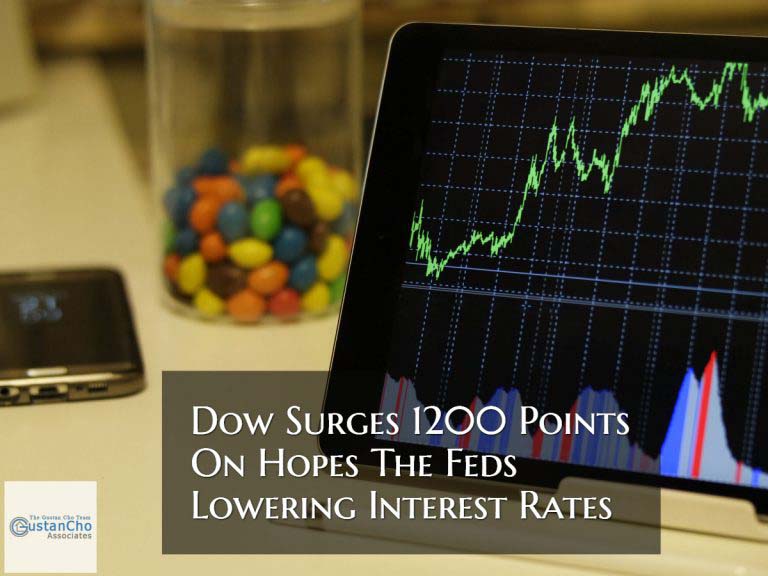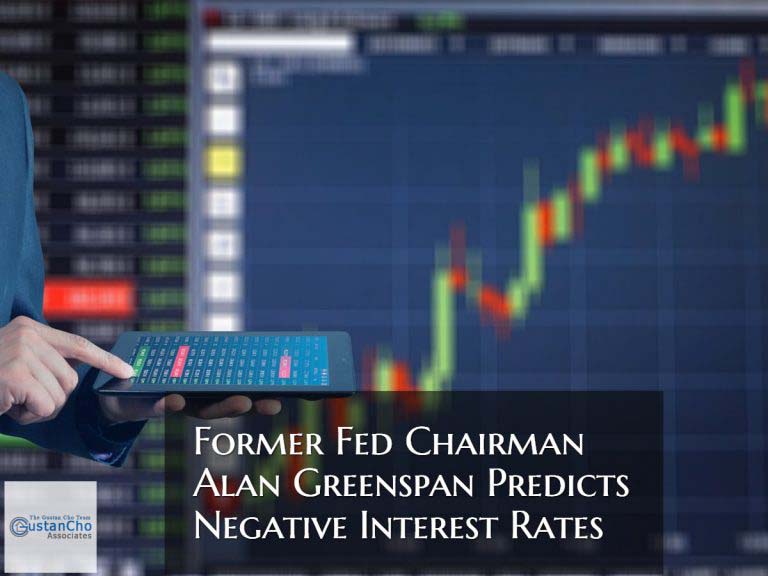Why You Should Care About the Producer Price Index (PPI)
Mortgage rates don’t move randomly. They rise and fall based on inflation, bond markets, and Federal Reserve policy. One of the strongest signals that experts watch is the Producer Price Index (PPI).
If you’ve ever asked yourself how PPI affects mortgage rates, the answer is simple. When producer costs fall, inflation cools, and mortgage rates usually follow. When producer costs rise, inflation heats up, and mortgage rates climb.
At Gustan Cho Associates, we keep borrowers ahead of the curve. In this guide, you’ll learn everything you need about how PPI affects mortgage rates, what it means for homebuyers and homeowners, and how to use this knowledge to lock in the best deal.
What Is the Producer Price Index (PPI)?
The Producer Price Index (PPI) serves as an essential indicator of the costs that companies incur to produce their goods. It shows how shifts in production costs can hint at future inflation trends in the economy.
When the PPI rises, it indicates that producers are facing higher costs, which typically leads to an increase in consumer prices and subsequently higher inflation.
Conversely, when the PPI declines, it suggests that producers are paying less for their goods. This reduction in costs can contribute to a slowdown in inflation, which often results in lower mortgage rates, benefiting consumers looking to borrow or refinance.
So if you want to understand how PPI affects mortgage rates, think of it like a thermostat for inflation. A “hot” PPI often brings higher rates, while a “cool” PPI can lower rates.
PPI Drop Signals Lower Mortgage Rates—Now’s the Time to Act
Lock in a lower rate with this market shift—refinance or buy your home now!
How PPI Affects Mortgage Rates: The Direct Connection
Mortgage rates move with inflation. Investors don’t want to earn a 6% return if inflation exceeds 5% of their money. That’s why PPI reports can move the bond market instantly.
Here’s the breakdown of how PPI affects mortgage rates:
PPI Rises
When the Producer Price Index (PPI) rises, it often triggers concerns about inflation. As these fears intensify, the Federal Reserve might respond by increasing interest rates. This, in turn, leads to a rise in bond yields, which typically causes mortgage rates to go up as well.
PPI Drops
When the PPI drops, it reflects a decrease in inflation fears. As a result, the Federal Reserve may choose to pause or even reduce interest rates. This change can lead to a decline in bond yields, resulting in lower mortgage rates for borrowers.
That’s why every serious loan officer studies how PPI affects mortgage rates before advising clients.
July 2025 PPI Report: A Turning Point for Borrowers
In July 2025, the Department of Labor reported that the Producer Price Index dropped 0.2%.
This mattered because:
- Inflation pressure slowed.
- The chance of more Fed rate hikes decreased.
- Investors bought more mortgage bonds.
- Mortgage rates dipped in the weeks after.
This real-world example shows how PPI affects mortgage rates in real time. Even a small 0.2% drop made a difference for borrowers.
How Soon Do Mortgage Rates React to PPI Changes?
Another common borrower question is: “If PPI drops, how soon will mortgage rates go down?”
- Markets react quickly: When there’s a significant surprise in the Producer Price Index (PPI), mortgage rates can adjust within hours. This immediate reaction is due to the market’s demand for quick recalibration based on new economic indicators.
- Full effects take weeks: While initial reactions happen swiftly, the full effects of a declining PPI on mortgage rates may unfold over a period of 2 to 6 weeks. During this time, lenders assess the sustained trends in PPI and adjust their rates accordingly.
- Timing matters: Understanding the relationship between PPI and mortgage rates can give borrowers a strategic advantage. By locking in rates early, they can secure more favorable terms before the broader market reacts, potentially pushing higher rates.
PPI vs. CPI: Which One Impacts Borrowers More?
Many borrowers confuse PPI (Producer Price Index) with CPI (Consumer Price Index). Both track inflation, but in different ways:
Producer Price Index (PPI)
The Producer Price Index (PPI) measures the costs that businesses incur to produce goods and services. It reflects changes in the prices that producers are willing to accept before those costs are transferred to consumers. As such, it serves as an indicator of the overall health of the production sector and can highlight trends in inflation before they affect retail prices.
Mortgage Rates Could Drop—PPI Decline Signals Opportunity
Take advantage of this economic shift to save money on your mortgage.
Consumer Price Index (CPI)
The Consumer Price Index (CPI) measures the prices people pay for various goods and services. It tracks changes in living costs and reflects consumers’ purchasing power. The index essentially provides insight into inflation from the consumer’s perspective, showing how market prices impact everyday expenses.
Both indices matter. However, PPI often leads to CPI because producer costs rise or fall before consumers feel it. That’s why understanding how PPI affects mortgage rates can give you an early advantage.
How PPI Affects Different Mortgage Programs
Do PPI changes hit all loan types equally? Here’s how PPI affects mortgage rates across different programs:
FHA Loans
FHA loans assist buyers with limited credit histories or lower incomes in purchasing homes. A decline in the Producer Price Index (PPI) often indicates lower inflation, which can lead to more favorable mortgage rates. This is particularly beneficial for first-time homebuyers or those seeking more accessible financing options. Lower PPI figures can reduce monthly payments, making homes more affordable.
VA Loans
VA loans provide significant advantages to veterans and active-duty military members, most notably through the lack of down payment requirements. Additionally, decreasing PPI often translates to lower interest rates, further benefiting borrowers. This combination of no down payment and reduced borrowing costs enables veterans to secure homes more easily and affordably, allowing them to focus on building their futures without the burden of high initial costs or interest payments.
Conventional Loans
Conventional loans are primarily influenced by bond market performance. When PPI declines, it can lead to falling interest rates in the bond market, making conventional loans more appealing to borrowers. Buyers may face lower mortgage payments as rates improve, allowing for better financial planning and increased purchasing power. The responsiveness of conventional loan rates to changes in PPI reflects their connection to broader economic indicators and market trends.
Non-QM & DSCR Loans
Non-QM and debt service coverage ratio (DSCR) loans are great options for folks who don’t quite fit the mold for traditional loans. These loans are affected by bond yields, so when the Producer Price Index (PPI) drops, borrowing costs can also go down. This is especially helpful for investors or self-employed people who often struggle to qualify for standard loans. As the PPI falls, these loans become easier to get and more affordable, making it easier for more people to take advantage of them.
No matter the program, if you want to understand mortgage pricing, you need to know how PPI affects mortgage rates.
Real Borrower Story: Saving After PPI Drop
In early June 2025, Michael, a first-time buyer in Texas, received a mortgage quote of 7.25% on a 30-year fixed-rate loan. However, after the Producer Price Index (PPI) dropped in mid-July 2025, he was able to lock in a lower rate of 6.5%. This decrease of 0.75% resulted in significant savings for him, amounting to $160 monthly. Michael’s awareness of how PPI impacts mortgage rates allowed him to make a savvy financial decision.
Should You Refinance When PPI Drops?
If you are currently paying an interest rate of 6.5% or higher, a decrease in the Prime Interest Rate (PPI) could present an excellent opportunity to consider refinancing your loan. A reduction of 0.50% leads to savings of $150 to $250 each month on a typical mortgage. Refinancing can lower what you pay each month and give you some extra cash. You can use that to pay off debt, fix your home, or boost your financial freedom.
Our team runs free analyses to show whether refinancing makes sense based on how PPI affects mortgage rates today.
What Borrowers Should Do Right Now
1. Get Pre-Approved Early
Getting pre-approved for a mortgage gives you a leg up when the market changes. It shows you’re a serious buyer and lets you jump on reasonable rates when they pop up. This can impact a competitive market where many people may want to buy the same property.
2. Lock Rates Quickly
In the wake of lower mortgage rates following a PPI report, it’s essential to lock in your rate as soon as possible. Rates can change rapidly, and failing to act swiftly can result in losing out on significant savings. Understanding market dynamics helps you make timely decisions to secure the best possible rate.
3. Review Refinancing Options
If you bought a home recently, it’s worth checking out your refinancing options since a drop in PPI might mean lower mortgage rates. Even if you got a decent rate, refinancing to a lower one could save you a lot of cash in the long run. Looking into refinancing can be a smart move, helping you take advantage of changes in the market.
Mortgage Rates Dropping? Take Advantage of the PPI Decline
Learn how this economic trend can help you secure the best possible mortgage rate.
Will the Fed Cut Rates If PPI Keeps Dropping?
The Federal Reserve doesn’t directly set mortgage rates, but its policies significantly influence the bond market. If the Producer Price Index (PPI) continues to decline, the Fed could pause any upcoming rate hikes. This approach could help stabilize the economy and provide more clarity on future financial decisions.
Additionally, a sustained drop in PPI may prompt the Fed to consider cutting the federal funds rate by late 2025. Such a move would likely have a substantial impact on mortgage rates, potentially driving them down even further as a reaction to the changing economic landscape influenced by PPI trends.
Why Choose Gustan Cho Associates
At Gustan Cho Associates, we focus on helping borrowers make the most of changing economic conditions. We:
- Approve loans that other lenders deny.
- Accept credit scores down to 500.
- Offer manual underwriting for challenging cases.
- Close in as little as 21 days.
- We are licensed in 50 states and territories.
When you understand how PPI affects mortgage rates, you can move fast—and when other lenders say no, we say YES.
Final Thoughts: How PPI Affects Mortgage Rates Is Your Borrowing Advantage
The Producer Price Index isn’t just for economists. It’s a tool every borrower should understand.
- PPI rises → rates rise.
- PPI falls → rates drop.
Now that you know how PPI affects mortgage rates, you can use that knowledge to buy or refinance smarter. Call Gustan Cho Associates at 800-900-8569, email alex@gustancho.com, or apply online today. Don’t wait for rates to rise again—take advantage while PPI is on your side.
Frequently Asked Questions About How PPI Affects Mortgage Rates:
Q: What is PPI in Simple Terms?
A: PPI tracks what businesses pay to produce. It’s a key inflation measure.
Q: How Does PPI Affect Mortgage Rates Directly?
A: When PPI rises, inflation grows, and rates go up. When PPI drops, inflation cools, and rates go down.
Q: Does PPI Matter More Than CPI?
A: Both matter. However, PPI often signals changes before CPI shows them.
Q: How Soon After PPI Drops Will I See Lower Rates?
A: Often within 2–6 weeks, sometimes sooner.
Q: Should I Refinance When PPI Falls?
A: If your rate is high, yes. How PPI affects mortgage rates can save you hundreds each month.
Q: Can PPI Drops Help FHA and VA Borrowers, Too?
A: Absolutely. All loan types benefit from lower inflation and rates.
Q: Will the Fed Cut Rates if PPI Keeps Falling?
A: If inflation cools, rate cuts are very likely in late 2025.
This blog about “How PPI Affects Mortgage Rates: Borrower’s Complete Guide” was updated on September 9th, 2025.
Producer Price Index Drop = Lower Mortgage Rates!
Take advantage of the market shift and secure a better mortgage rate before it changes again.










